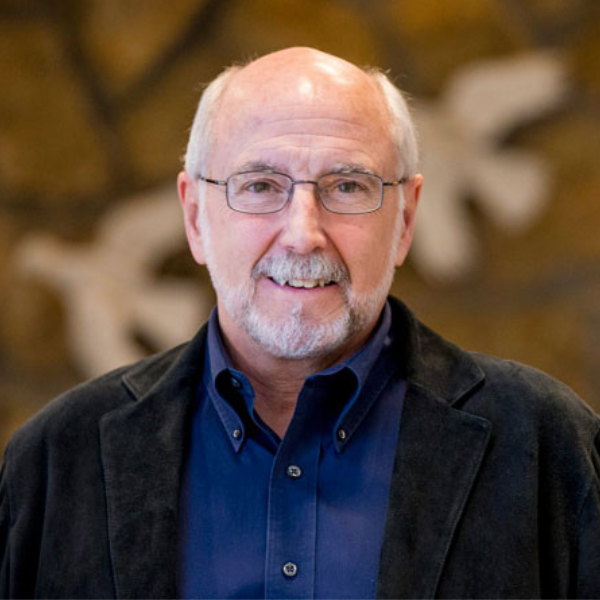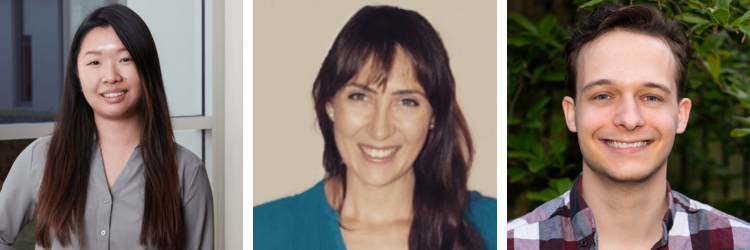Special Sessions
Thursday, November 14 | 6:00 PM – 7:15 PM
Recovery Extends to All: The Philadelphia Story of Recovery-Oriented Cognitive Therapy
Discussant:

Judith S. Beck, Ph.D., President/Clinical Professor, Beck Institute for Cognitive Behavior Therapy/University of Pennsylvania
Presenters:

Arthur C. Evans, Jr., Ph.D., Chief Executive Officer, American Psychological Association
Paul Grant, Ph.D., Director, Beck Institute
Participants earn 1 continuing education credit
Categories: Vulnerable Populations, Treatment/Program Design
Keywords: Recovery, Public Health, Implementation
Basic to Moderate level of familiarity with the material.
Dr. Evans is currently the CEO of the American Psychological Association. Dr. Grant, a close colleague of Dr. Aaron Beck for many years, is the Director of the Center for Recovery-Oriented Cognitive Therapy (CT-R) at the Beck Institute. Drs. Evans and Grant will present a unique— and exciting— academic-community partnership that originated in Philadelphia and has had an important local and national impact.
As the former commissioner of the Department of Behavioral Health and Intellectual Disability Services, Dr. Evans will illustrate what was necessary to establish a productive collaboration with Dr. Beck, Dr. Grant, and colleagues. Using a population health lens, Evans will describe his vision for improving health and re-envisioning health care in Philadelphia, including the role of evidence-based practices—in particular cognitive therapy—for improving community health and wellbeing, especially in areas most impacted by poverty and racism. A key aspect of the effort was the implementation of CT-R, an empowering, strengths-based approach developed by Drs. Beck, Grant, and colleagues, across the continuum of care— linking state hospitals with independent living— for individuals given a diagnosis of a serious mental health condition.
Dr. Grant will describe CT-R, show how his team implemented it across the system and helped sustain it long-term. He will also share the program evaluation outcomes. This approach has improved the lives of hundreds of Philadelphians, including those in institutional settings (hospital, carceral) who — in collaboration with CT-R trained staff — returned to the community to participate and thrive. Dr. Grant will also share how the Philadelphia model of CT-R implementation has been replicated elsewhere in the country.
Dr. Judith Beck will introduce Drs. Evans and Grant and moderate the discussion.
Outline:
- 6:00 – 6:05 Welcome and introductions: Judith S. Beck, Ph.D.
- 6:05 – 6:25 Introduction to a population health approach to mental health care and vision for healthcare in Philadelphia: Arthur Evans, Ph.D.
- 6:25 – 6:50 Overview of CT-R and description of implementation process: Paul Grant, Ph.D.
- 6:50 – 7:00 Moderated discussion of CT-R implementation in Philadelphia, including outcomes and future directions: Judith S. Beck, Ph.D., Arthur Evans, Ph.D., and Paul Grant, Ph.D.
- 7:00 – 7:15: Audience Q&A
At the end of this session, the learner will be able to:
- Describe the population health approach and its implications for healthcare
- Describe how Recovery-Oriented Cognitive Therapy (CT-R) promotes recovery and resilience
- Describe the purpose of the Recovery Map
Long-term Goals:
- Attendees will increase their effectiveness by integrating strategies from Recovery Oriented Cognitive Therapy into their treatment.
Recommended Readings:
- Beck, A. T., Grant, P., Inverso, E., Brinen, A. P., & Perivoliotis, D. (2020). Recovery-oriented cognitive therapy for serious mental health conditions. Guilford Publications.
- Grant, P. M., & Inverso, E. (2023). CME. Recovery-Oriented Cognitive Therapy: Changing Lives With a Whole-Person Approach. Psychiatric Times, 40(1).
- Grant, P. M. (2019). Recovery-oriented cognitive therapy: A theory-driven, evidence-based, transformative practice to promote flourishing for individuals with serious mental health conditions that is applicable across mental health systems. Alexandria, VA: National Association of State Mental Health Program Directors.
- Evans AC, Bufka LF. The Critical Need for a Population Health Approach: Addressing the Nation’s Behavioral Health During the COVID-19 Pandemic and Beyond. Prev Chronic Dis 2020;17:200261.
This session is complimentary. To register, select the session under Thursday ticked events: ABCT – 2024 Registration (rcsreg.com)
Saturday, November 16 | 9:00 AM – 10:30 AM
Opening Doors to the Future of Precision Mental Health Care for Anxiety Disorders in Children and Young People
Dr. Mary Cover Jones “Partners in the Studies of Human Lives” Honorary Award
Grand Ballroom G/H, Level 5, Downtown Marriott
Chairs:

Jennifer L. Hudson, Ph.D., Professor, Black Dog Institute
Maaike Heleen Nauta, M.S., Ph.D., Professor, University of Groningen, the Netherlands
Discussant:

Philip C. Kendall, ABPP, Ph.D., Laura H. Carnell Professor of Psychology; Director: Child and Adolescent Anxiety Disorders Clinic, Temple University
Presenters:

Jennifer L. Hudson, Ph.D., Professor, Black Dog Institute
Wenting Chen, Ph.D., Postdoctoral Fellow, Black Dog Institute
Lizel Bertie, Graduate student, University of Groningen
Bas E.A.M. Kooiman, M.S., Graduate student, University of Groningen
Maaike Heleen Nauta, M.S., Ph.D., Professor, University of Groningen, the Netherlands
Participants earn 1.5 continuing education credits
Category: Child/Adolescent Anxiety
Keywords: Anxiety, Psychotherapy Outcome, Methods
Moderate level of familiarity with the material.
When children and young people receive treatment for anxiety in clinical trials, on average about 50% benefit from CBT, while 50% remain symptomatic, even with enhanced treatments. Moreover, some relapse after initial response. To date, little is known about individual differences between those who respond and those who respond sub-optimally, or relapse later. Single randomised controlled trials are often underpowered to examine (combinations of) predictors of treatment success. The iconic question asked by Gordon Paul – “What treatment, by whom, is most effective for this individual with that specific problem, and under which set of circumstances which treatments work for whom” – was asked 55 years ago, and we are still not much closer to the truth in the field of child mental health. We urgently need data innovations to better support clinicians and families in their treatment planning and decision making to improve outcomes for children and young people with anxiety.
In this symposium, we will present five papers, each examining the “What works for Whom” question in the context of CBT for children and young people with anxiety disorders. Central to our symposium is PADDY, a novel international Platform on Anxiety Disorder Data in Youth, that combines datasets from existing clinical trials and provides a unique opportunity to investigate individual predictors. To date, we have collected individual data from over 6800 children and their families before and after CBT, across 12 countries including the USA, Canada, UK, Australia and the Netherlands.
First, Jennifer Hudson will present the rationale and methods of the PADDY project, the largest data sharing global repository for clinical trials of paediatric anxiety: we have harnessed existing data (and subsequent power) from existing trials to identify predictors and moderators in a more convincing way, a major step in answering the WHAT works for WHOM question.
Aligned with the theme of the conference regarding community engagement, Wendy Chen will share our research conducted with parents, children and clinicians examining their views of PADDY. This will help the field move away from solely researcher driven priorities towards a more diverse perspective and examining opportunities identified by young people, parents, clinicians, and school professionals.
The next three papers will present the findings of our work so far combining datasets to answer the question “what works for whom.” Lizel Bertie will present work on clinical and demographic predictors of treatment outcome, and how these may influence individual treatment decisions.
Then, Bas Kooiman will dive into predictors of relapse and show that depressive symptoms present after CBT are associated with worse outcome. He will discuss how relapse prevention interventions may aid in decreasing relapse rates.
Finally, Maaike Nauta will present a study on WHAT works: can we find treatment ingredients that are associated with better outcomes.
As a discussant, Phil Kendall will reflect on the potential of using an international data repository to further progress the field towards applying knowledge of predictors to personalizing treatments, in order to enhance treatment effectiveness.
At the end of this session, the learner will be able to:
- Explain the rationale and potential of PADDY, a collaborative and international Platform on Anxiety Disorder Data in Youth
- Discover the perspectives of researchers, young people, parents and clinicians on relevant issues regarding predicting outcome
- Name individual characteristics that are predictive of treatment nonresponse and relapse after initial success
- Identify treatment ingredients that are related to treatment outcome
- Discuss different methodologies including machine learning to answer research questions on predicting treatment outcome.
Recommended Readings:
Bertie L-A and Hudson JL (2021). CBT for Childhood Anxiety: Reviewing the State of Personalised Intervention Research. Frontiers Psychology 12:722546. doi: 10.3389/fpsyg.2021.722546
https://www.blackdoginstitute.org.au/research-centres/paddy/
Robberegt, S. J., Brouwer, M. E., Kooiman, B. E. A. M., Stikkelbroek, Y. A. J., Nauta, M. H., & Bockting, C. L. H. (2023). Meta-Analysis: relapse prevention strategies for depression and anxiety in remitted adolescents and young adults. Journal of the American Academy of Child and Adolescent Psychiatry, 62(3), 306-317. https://doi.org/10.1016/j.jaac.2022.04.014

